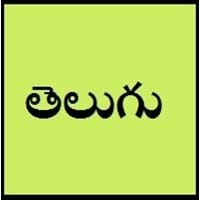Countries
Hong Kong, Macau
Andra Pradesh, India, Telangana, Yanam
National Language
China, Guangdong
Andra Pradesh, India
Second Language
Not spoken in any of the countries
Karnataka
Speaking Continents
Asia
Asia
Minority Language
Hawaii
Andaman and Nicobar Islands, Chhattisgarh, Karnataka, Maharashtra, Odisha, Puducherry, Tamil Nadu
Regulated By
Civil Service Bureau, Government of Hong Kong, Official Language Division
Telugu Academy and Official Language Commission of Government of Andhra Pradesh
Interesting Facts
- Cantonese have lot of slangs, many of them include words that do not make sense at all and some also have English in them.
- Even though Cantonese and Mandarin are dialects of Chinese, Cantonese has 8 tones instead of Mandarin's 4.
- Telugu is the only language in the Eastern world that has every single word that ends with a vowel sound. Telugu language is called "Italian of the East".
- Telugu is one of the oldest language in India which is 2,400 years old.
Similar To
Chinese Language
Tamil
Derived From
Not Available
Sanskrit Language
Alphabets in
Cantonese-Alphabets.jpg#200
Telugu-Alphabets.jpg#200
Scripts
Chinese Characters and derivatives
Telugu Script
Writing Direction
Left-To-Right, Horizontal, Top-To-Bottom
Left-To-Right, Horizontal
Thank You
谢谢
ధన్యవాదాలు (Dhan'yavādālu)
How Are You?
你好吗?
నువ్వు ఎలా ఉన్నావు? (Nuvvu elā unnāvu?)
Good Night
晚安
శుభ రాత్రి (Śubha rātri)
Good Evening
晚上好
శుభ సాయంత్రం (Śubha sāyantraṁ)
Good Afternoon
下午好
శుభ మద్యాహ్నం (Śubha madyāhnaṁ)
Good Morning
早上好
శుభోదయం (Śubhōdayaṁ)
Please
请
దయచేసి (Dayacēsi)
Sorry
遗憾
క్షమించాలి (Kṣamin̄cāli)
I Love You
我爱你
నేను నిన్ను ప్రేమిస్తున్నాను (Nēnu ninnu prēmistunnānu)
Excuse Me
原谅我
క్షమించండి (Kṣamin̄caṇḍi)
Dialect 1
Guangzhou
Waddar
Where They Speak
outside mainland China
Andra Pradesh, Karnataka, Maharashtra
How Many People Speak
Not Available
Where They Speak
Hong Kong
Andra Pradesh, Karnataka, Orissa
How Many People Speak
Not Available
Dialect 3
Hong Kong
Manna-Dora
Where They Speak
Hong Kong
Andra Pradesh, Tamil Nadu
How Many People Speak
Not Available
Second Language Speakers
Not Available
Native Name
Kwang Tung Wa
తెలుగు (telugu)
Alternative Names
Guangfu, Metropolitan Cantonese
Andhra, Gentoo, Tailangi, Telangire, Telegu, Telgi, Tengu, Terangi, Tolangan
French Name
Not Available
télougou
German Name
Not Available
Telugu-Sprache
Pronunciation
Not Available
Not Available
Ethnicity
Not Available
Telugu people
Origin
17th century
c. 575
Language Family
Sino-Tibetan Family
Dravidian Family
Subgroup
Not Available
Not Available
Branch
Not Available
Not Available
Early Forms
No early forms
Early Telugu epigraphy
Standard Forms
Standard Cantonese
Telugu
Language Position
Not Available
Signed Forms
Not Available
Not Available
Scope
Not Available
Individual
ISO 639 1
No data available
te
ISO 639 2/T
Not Available
tel
ISO 639 2/B
Not Available
tel
ISO 639 3
No data available
tel
ISO 639 6
Not Available
Not Available
Glottocode
cant1236
telu1262
Linguasphere
No data available
No data available
Language Type
Not Available
Living
Language Linguistic Typology
Not Available
Subject-Object-Verb
Language Morphological Typology
Not Available
Not Available
All Cantonese and Telugu Dialects
Most languages have dialects where each dialect differ from other dialect with respect to grammar and vocabulary. Here you will get to know all Cantonese and Telugu dialects. Various dialects of Cantonese and Telugu language differ in their pronunciations and words. Dialects of Cantonese are spoken in different Cantonese Speaking Countries whereas Telugu Dialects are spoken in different Telugu speaking countries. Also the number of people speaking Cantonese vs Telugu Dialects varies from few thousands to many millions. Some of the Cantonese dialects include: Guangzhou, Xiguan. Telugu dialects include: Waddar , Chenchu. Also learn about dialects in South American Languages and North American Languages.
Cantonese and Telugu Speaking population
Cantonese and Telugu speaking population is one of the factors based on which Cantonese and Telugu languages can be compared. The total count of Cantonese and Telugu Speaking population in percentage is also given. The percentage of people speaking Cantonese language is 16.00 % whereas the percentage of people speaking Telugu language is 1.15 %. When we compare the speaking population of any two languages we get to know which of two languages is more popular. Find more details about how many people speak Cantonese and Telugu on Cantonese vs Telugu where you will get native speakers, speaking population in percentage and native names.
Cantonese and Telugu Language Codes
Cantonese and Telugu language codes are used in those applications where using language names are tedious. Cantonese and Telugu Language Codes include all the international language codes, glottocodes and linguasphere.





